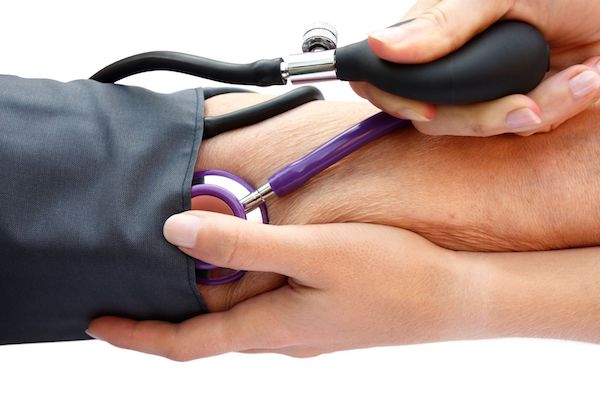Hypertension – or high blood pressure – is a chronic condition in which the pressure exerted by the pumping action of the heart on artery walls is greater than normal.

According to the Heart and Stroke Foundation South Africa (HSF), hypertension is the country’s most commonly diagnosed, non-infective condition.
Hypertension causes the heart to work harder and damages the arteries, making it a leading factor in the development of heart disease and stroke. Primary hypertension (high blood pressure not caused by an underlying medical condition) accounts for up to 95 percent of cases and is more likely to develop with age and as the result of a combination of genetic and environmental factors.
What are its symptoms?
You probably won’t feel if you have high blood pressure. Hypertension symptoms do not exist at all in most cases, which is why the disease is dubbed a ‘silent killer’. Regular blood pressure screenings are essential for this reason.
Hypertensive crisis, a rapid and extremely high rise in blood pressure, may be accompanied by:
How is it diagnosed?
Healthcare providers use a device called a sphygmomanometer (or baumanometer) to measure blood pressure. As blood pressure is variable, even just throughout the day, your doctor may perform two or three readings on separate occasions before reaching a diagnosis of hypertension.
A range of blood pressure readings are possible, dependent on various factors, such as age, activity, body position, body mass or the quality of food intake. The classification of hypertension is a blood pressure reading of 140/90 mmHg or higher, with the first number referring to your systolic blood pressure (when the heart muscle contracts) and the second referring to diastolic blood pressure (when the heart muscle relaxes).
Your doctor will usually also take a medical history and ask several lifestyle-related questions in order to ascertain which risk factors may be present. A physical examination will reveal whether the elevated blood pressure has been sustained or not – that is, whether there is established hypertension.
Your doctor may also schedule additional tests to look for any other signs of cardiovascular disease, such as a cholesterol test, or signs of kidney disease (a secondary cause of high blood pressure), or tests to establish whether the elevated blood pressure has had any permanent effects on the body.
It’s recommended that you have your blood pressure checked every two years from age 18.
What are your treatment options?
Hypertension treatment focuses largely on lifestyle modifications to help lower blood pressure and, if deemed necessary by your healthcare provider, the use of antihypertensive medication. There are various types of antihypertensive medication available and often a combination of drugs will be used to combat the condition.
Important lifestyle changes include getting your weight within a healthy range by eating a healthy, balanced diet and exercising regularly, eating less salt (the HSF recommends no more than 5g in total a day), quitting smoking and limiting your alcohol intake. These factors have all been shown to have a positive impact on blood pressure.
Can it be prevented?
The same lifestyle changes used to lower blood pressure play an important role in hypertension prevention. Because the disease can persist symptom-free, it’s important to take active steps to lower your blood pressure even if high blood pressure has not been diagnosed.
Take part in at least 150 minutes of moderate-intensity physical activity each week, eat five portions of fruit and vegetables a day and keep your weight in check. Importantly, don’t neglect your regular physical check-ups at the doctor, as undiagnosed high blood pressure can be deadly.
What to do now
Clicks Clinics will help you identify and manage hypertension with their wide range of screening tests. These include:
- Blood Pressure (BP) Test
- Cholesterol Testing and Consultation
- Lipogram Blood Test (to determine different types of cholesterol)
- Clicks Full Basic Screening (BP, Body Mass Index or BMI, meal guide and exercise plan)
- Clicks Screening Measurements only (BP and BMI)
- Clicks Comprehensive Screening (BP, BMI, Glucose and Cholesterol screening, plus meal and exercise plan).
To make an appointment at a Clicks Clinic, call 0860 254 257 or visit Clicks Clinics online.
For more info
The Heart and Stroke Foundation South Africa
IMAGE CREDIT: 123rf.com
